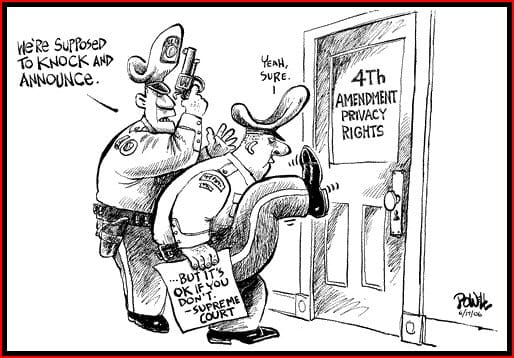
Supreme Court justices heard oral arguments in the most important digital privacy case in decades, involving whether it's constitutional for authorities to seize and search a person's cellphone records without warrant.
The case, Carpenter vs. USA, focuses on Timothy Carpenter, who was convicted of robbery after authorities used cell phone records to capture his location. Carpenter appealed the case a lower court's decision to affirm Carpenter's conviction and 116-year sentence.
The American Civil Liberties Union has signed on to the case to defend what they see as key Fourth Amendment rights.
ACLU attorney Nathan Freed Wessler, said the records give the government a "time machine" that "upends the balance of power" between people and the government that the founding fathers never intended.
"We carry our cellphones everywhere we go," and a record of days, weeks or months of our cellphone location records can chart out the most private parts of our lives — where we go to the doctor, where we sleep at night and who we sleep with.
No comments:
Post a Comment